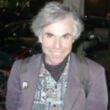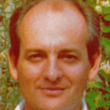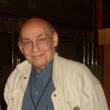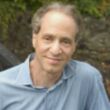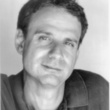The most human human : what talking with computers teaches us about what it means to be alive
(Book)
128 CHRIS
2 available
Copies
| Location | Call Number | Status |
|---|---|---|
| Central - Adult Nonfiction | 128 CHRIS | Available |
| Central - Adult Nonfiction | 128 CHRIS | Available |
Description
More Details
Notes
Excerpt
Similar Titles From NoveList
Similar Authors From NoveList
Published Reviews
Booklist Review
*Starred Review* Each year humans and computers square off for the Turing test, which Christian describes as a kind of speed dating via instant messaging, with five minutes to prove which is human. In 2009, Christian traveled to Brighton, England, to compete in a contest matching four humans and four computers. Christian chronicles his preparation and time spent devising strategies to trump the chatbot computers that can imitate humans. Along the way, he draws on philosophy, neurology, linguistics, and computer science, recalling chess master Garry Kasparov losing a match to IBM's Deep Blue computer and more recent developments in artificial intelligence. He explores how computers have challenged our bias toward the left hemisphere of the brain (logic) versus the right hemisphere (emotions) and how he and others have come to a deeper appreciation of emotional intelligence. He laments how so many jobs have trained employees with limited scripts that render them human chatbots. Christian intersperses interviews and musings on poetry and literature, observations on computer science, and excerpts from post-Turing test conversations for a fascinating exploration of what it means to be human. This book will surely change the way readers think about their conversations.--Bush, Vanessa Copyright 2010 Booklist
Publisher's Weekly Review
In a fast-paced, witty, and thoroughly winning style, Christian documents his experience in the 2009 Turing Test, a competition in which judges engage in five-minute instant-message conversations with unidentified partners, and must then decide whether each interlocutor was a human or a machine. The program receiving the most "human" votes is dubbed the "most human computer," while the person receiving the most votes earns the title of "most human human." Poet and science writer Christian sets out to win the latter title and through his quest, investigates the nature of human interactions, the meaning of language, and the essence of what sets us apart from machines that can process information far faster than we can. Ranging from philosophy through the construction of pickup lines to poetry, Christian examines what it means to be human and how we interact with one another, and with computers as equals-via automated telephone menus and within the medical establishment, for example. This fabulous book demonstrates that we are capable of experiencing and sharing far deeper thoughts than even the best computers-and that too often we fail to achieve the highest level of humanness. (Mar.) (c) Copyright PWxyz, LLC. All rights reserved.
Booklist Reviews
*Starred Review* Each year humans and computers square off for the Turing test, which Christian describes as a kind of speed dating via instant messaging, with five minutes to prove which is human. In 2009, Christian traveled to Brighton, England, to compete in a contest matching four humans and four computers. Christian chronicles his preparation and time spent devising strategies to trump the chatbot computers that can imitate humans. Along the way, he draws on philosophy, neurology, linguistics, and computer science, recalling chess master Garry Kasparov losing a match to IBM's Deep Blue computer and more recent developments in artificial intelligence. He explores how computers have challenged our bias toward the left hemisphere of the brain (logic) versus the right hemisphere (emotions) and how he and others have come to a deeper appreciation of emotional intelligence. He laments how so many jobs have trained employees with limited scripts that render them human chatbots. Christian intersperses interviews and musings on poetry and literature, observations on computer science, and excerpts from post-Turing test conversations for a fascinating exploration of what it means to be human. This book will surely change the way readers think about their conversations. Copyright 2011 Booklist Reviews.
Library Journal Reviews
The Turing Test: a bunch of judges ask questions of undisclosed contestants, trying to figure out which are human and which is a computer. There's a prize for the Most Human Computer—and the Most Human Human. When Christian became a contestant in 2009, he was determined to prove himself more human than any computer (in the previous year, the computers were acting very human indeed). Here he talks about the contest and the pressing issues it raises. Since Christian has degrees in both philosophy and computer science and an MFA in poetry, he should do this justice. I'm intrigued—and, really, who cannot love a philosophy-trained author who writes poetry? Not just for geeks.
[Page 59]. (c) Copyright 2010. Library Journals LLC, a wholly owned subsidiary of Media Source, Inc. No redistribution permitted.Publishers Weekly Reviews
In a fast-paced, witty, and thoroughly winning style, Christian documents his experience in the 2009 Turing Test, a competition in which judges engage in five-minute instant-message conversations with unidentified partners, and must then decide whether each interlocutor was a human or a machine. The program receiving the most "human" votes is dubbed the "most human computer," while the person receiving the most votes earns the title of "most human human." Poet and science writer Christian sets out to win the latter title and through his quest, investigates the nature of human interactions, the meaning of language, and the essence of what sets us apart from machines that can process information far faster than we can. Ranging from philosophy through the construction of pickup lines to poetry, Christian examines what it means to be human and how we interact with one another, and with computers as equals—via automated telephone menus and within the medical establishment, for example. This fabulous book demonstrates that we are capable of experiencing and sharing far deeper thoughts than even the best computers—and that too often we fail to achieve the highest level of humanness. (Mar.)
[Page ]. Copyright 2010 PWxyz LLCReviews from GoodReads
Citations
Christian, B. (2011). The most human human: what talking with computers teaches us about what it means to be alive (First edition.). Doubleday.
Chicago / Turabian - Author Date Citation, 17th Edition (style guide)Christian, Brian, 1984-. 2011. The Most Human Human: What Talking With Computers Teaches Us About What It Means to Be Alive. New York: Doubleday.
Chicago / Turabian - Humanities (Notes and Bibliography) Citation, 17th Edition (style guide)Christian, Brian, 1984-. The Most Human Human: What Talking With Computers Teaches Us About What It Means to Be Alive New York: Doubleday, 2011.
Harvard Citation (style guide)Christian, B. (2011). The most human human: what talking with computers teaches us about what it means to be alive. First edn. New York: Doubleday.
MLA Citation, 9th Edition (style guide)Christian, Brian. The Most Human Human: What Talking With Computers Teaches Us About What It Means to Be Alive First edition., Doubleday, 2011.


























